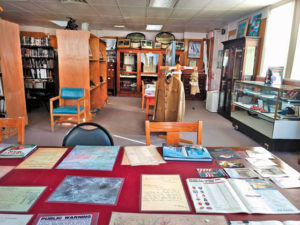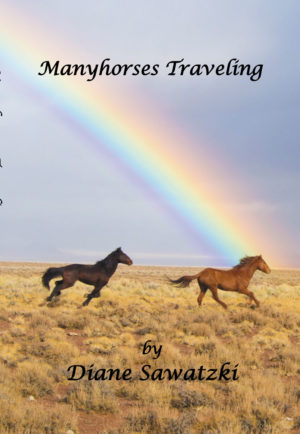By John Mattingly
The most common “thoughts and prayers” during an unseasonably warm winter are mixed between taking advantage of the warm weather and the perennial concern in the West for snowpack and water supply.
Having farmed for over forty years, I’ve spent most of my life outside, where luck and livelihood depended on the weather. My memories and records of the weather are testimonial and cover a de minimis time period, but suggest warm winters have come along about two out of five winters since 1968. There have been several Januaries during which I had to suppress the temptation to plant wheat, and one January, in 1976, when I did plant wheat, it went on to be harvested in June. “You got away with one,” an old timer told me.
[InContentAdTwo]
Maybe. In recent years, as noted in a prior column, winter wheat (Hard Red Winter Wheat), is becoming common in places that were previously too cold. And, ironically, this should signal that we may need to “get away with one” (or two) if Earth’s climate changes in ways less favorable to mammals. We know this is a possibility; we see evidence accruing, and recent storms have both stimulated probity and caused many to bury their head in a pew.
Ed Quillen wrote a piece years ago articulating problems with mobilizing today to prevent or influence outcomes that manifest several generations in the future: (a) it’s hard enough for 7.6 billion people to secure their daily bread and shelter, let alone change their behavior to benefit the still unborn, (b) many of the necessary sacrifices are required of those least capable of making them, and finally (c) the difficulty of arbitrating fairness between those who probably contributed to the problem and those who may deserve extra credit for prior restraint or inability.
Since Ed’s piece, it has become abundantly clear that humans do not want to face a changing climate until, as president Trump invariably says: “Let’s see what happens ….” Perhaps innovation or divine intervention will happen. It’s happened before that natural forces have randomly given us booster shots of benefits, and it’s also true that human ingenuity has come up with solutions to an expanding population, like growing food in an organized way and eventually deploying every tool and trick to amplify production, or putting satellites into orbit to enhance communications and telescopes and space stations for observation.
Banking on innovation is preferable to doing any of the following: (a) giving up meat, the production nexus of which is a majority contributor to greenhouse gases, or (b) driving less in smaller, more efficient cars, or (c) being fiscally responsible, or (d) buying everything in bulk to reduce plastification of the oceans, or (e) valuing abortion as a secular sacrament.
Even the efforts to mobilize strategic responses to rising sea levels and dying forests and accumulating waste require problematic, and often hypocritical, breaches of the promoted principles of restraint. It isn’t rash to suggest that humans have always pushed the edges outward, and now we have created an ultimate challenge because this really is the edge of the world.
Looking back about a million years or so, a few primates went about their mischief by walking on two legs, and eventually populated and changed every biome on Earth. Until now, we could always get away with one because the stakes were local or regional. In fact, the speed with which humans spread across the planet may well have been driven by a need, and the ability, to escape their own waste by moving on.
But messing with the entire planet, where there is a risk of turning Earth into either Venus or Mars –even if the probability is in single digit – would seem worthy of action to mitigate such a risk.
Problem is, the fitness of homo sapiens has gradually selected against planning too far ahead. As information flows between humans became faster and broader banded, we became wary of planning more than, say, two or three generations ahead, occasionally four or five generations, partly because the expense of building for millennial endurance is too expensive, and besides, in several decades, innovation will come along that will provide better ways to do everything.
T
he first humans to build an arsenal of spears were soon overcome by those with slings and arrows, just as those who put their fortune in Gatling guns soon faced machine guns and atomic bombs. Single lens reflex cameras were replaced by digital cameras and Kodak was left holding the film, the investment in wood and copper for telecom is being replaced by wireless satellite systems. We experience buyer’s remorse with cell phones, always updating and offering more for less, as well as with solar panels and TVs and everything electronic.
The irony of human innovation is that it tends to cause a majority to wait and “See what happens …” because committing too soon is often embarrassing or even the butt of a fatal flaw in planning. Choosing leadership that considers the future only after it has occurred, means humans are taking a gamble that, frankly, we may secretly welcome.
Here’s why. A world economy built on the growth ethic and fossil fuels consumption necessarily leaves consumers in a constant state of anxiety as to the timeliness of their resource use and application. At the same time, our ability to communicate is nearly instantaneous. This puts all of us in the middle and center of everything at the same time, a web of endless options that frequently interferes with both satisfaction and progress. Give a person three choices and they can manage it, but give them 23 options and no matter what is chosen, there will always be doubt as to whether one of the other 22 options was better.
An existential threat, such as mass extinctions and climate chaos, will forcibly reduce human options to two or three. We heard the voices of survivors from Sandy, Harvey, Irma, and Maria express the way in which crisis brings into focus what is really important. It appears that homo sapiens are purposefully painting the species into a corner so that we can adjust the metrics of our importance, and have a better understanding of our place in a universe of benign indifference
John Mattingly cultivates prose, among other things, and was most recently seen near Moffat.



